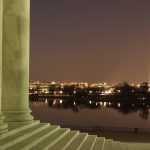 The FTC released its long-awaited study of so-called patent assertion entities, or PAEs, today. As many predicted, the FTC makes several broad recommendations for substantive and procedural reforms. The problem with this, however, is that the study was not designed to reveal the sort of data that could support such policy recommendations. Read more
The FTC released its long-awaited study of so-called patent assertion entities, or PAEs, today. As many predicted, the FTC makes several broad recommendations for substantive and procedural reforms. The problem with this, however, is that the study was not designed to reveal the sort of data that could support such policy recommendations. Read more
Tag: Kristen Osenga
CPIP Scholars File Amicus Brief in Trading Technologies v. CQG
 Earlier this month, CPIP Senior Scholar Adam Mossoff penned an amicus brief in Trading Technologies v. CQG, currently on appeal to the Federal Circuit. The brief was joined by nine other IP scholars, including CPIP Senior Scholars Mark Schultz and Kristen Osenga. Read more
Earlier this month, CPIP Senior Scholar Adam Mossoff penned an amicus brief in Trading Technologies v. CQG, currently on appeal to the Federal Circuit. The brief was joined by nine other IP scholars, including CPIP Senior Scholars Mark Schultz and Kristen Osenga. Read more
Acknowledging the Limitations of the FTC’s PAE Study
 The FTC’s long-awaited case study of patent assertion entities (PAEs) is expected to be released this spring. Using its subpoena power under Section 6(b) to gather information from a handful of firms, the study promises us a glimpse at their inner workings. Read more
The FTC’s long-awaited case study of patent assertion entities (PAEs) is expected to be released this spring. Using its subpoena power under Section 6(b) to gather information from a handful of firms, the study promises us a glimpse at their inner workings. Read more
How Rhetorical Epithets Have Led the FTC Astray in its Study of Patent Licensing Firms
We’ve all heard the narrative about patent licensing firms, often referred to pejoratively as “patent trolls.” These patent owners, who choose to license their innovations rather than build them, are the supposed poster-children of a “broken” patent system. It’s as if commercializing one’s property, just like a landlord leases his land for another to use, is suddenly a bad thing. Read more

